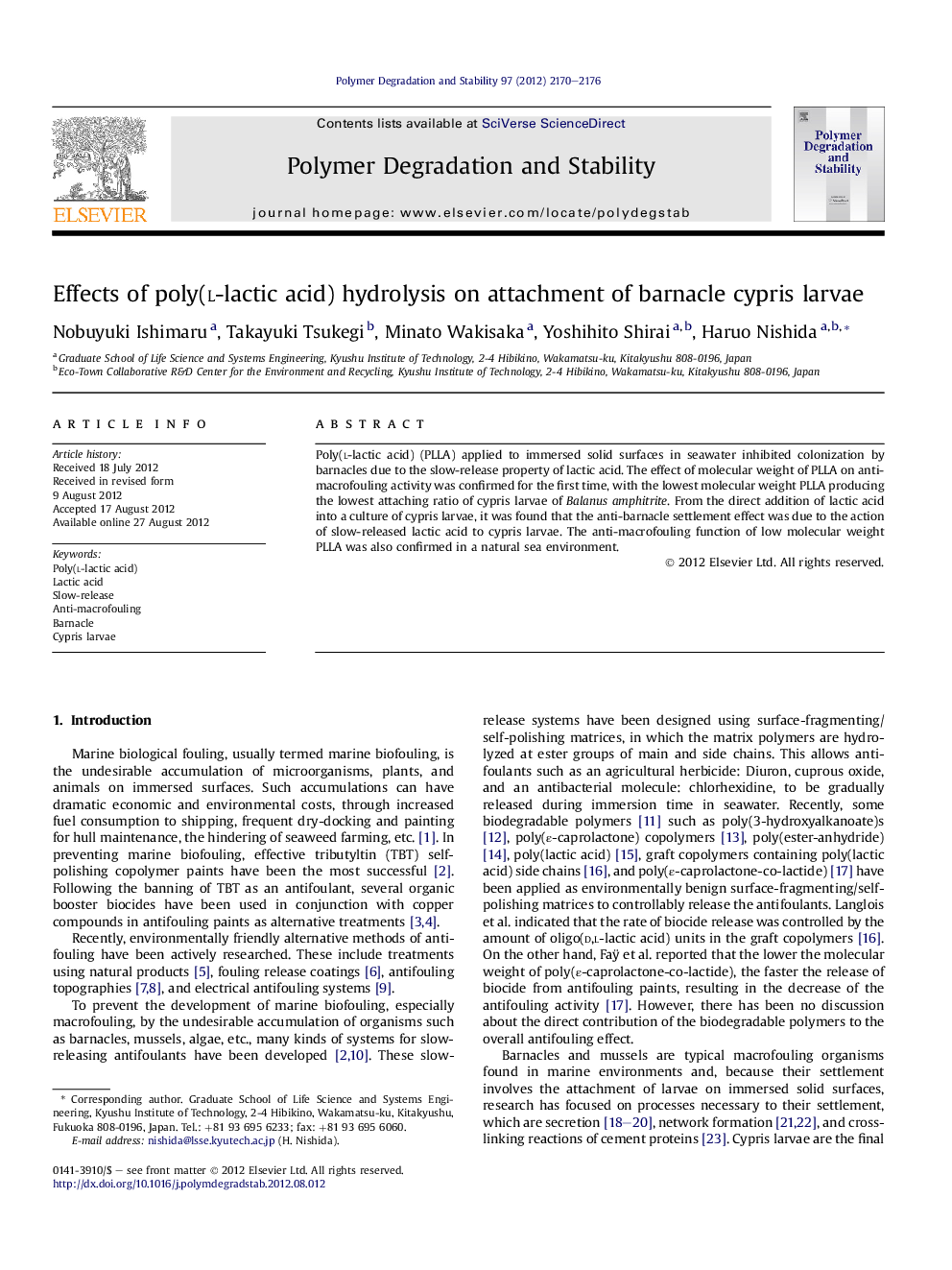| Article ID | Journal | Published Year | Pages | File Type |
|---|---|---|---|---|
| 5202562 | Polymer Degradation and Stability | 2012 | 7 Pages |
Abstract
Poly(l-lactic acid) (PLLA) applied to immersed solid surfaces in seawater inhibited colonization by barnacles due to the slow-release property of lactic acid. The effect of molecular weight of PLLA on anti-macrofouling activity was confirmed for the first time, with the lowest molecular weight PLLA producing the lowest attaching ratio of cypris larvae of Balanus amphitrite. From the direct addition of lactic acid into a culture of cypris larvae, it was found that the anti-barnacle settlement effect was due to the action of slow-released lactic acid to cypris larvae. The anti-macrofouling function of low molecular weight PLLA was also confirmed in a natural sea environment.
Related Topics
Physical Sciences and Engineering
Chemistry
Organic Chemistry
Authors
Nobuyuki Ishimaru, Takayuki Tsukegi, Minato Wakisaka, Yoshihito Shirai, Haruo Nishida,
